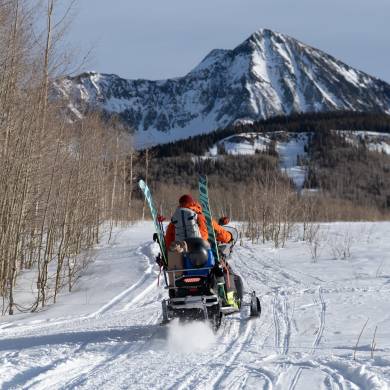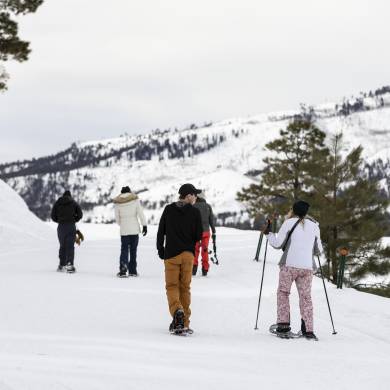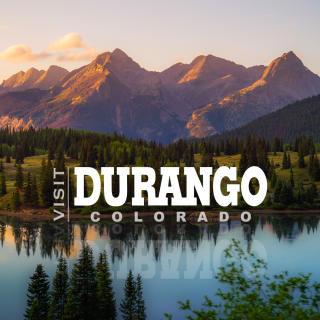An uncharacteristically dry winter season has brought drought to Southwest Colorado, which menas this summer our forests need even more love than usual! As of June 1st, Durango and the surrounding San Juan National Forest are under Stage 2 Fire Restrictions.
Being located in such a dry, high-desert climate, Durango is no stranger to fire bans and regulations, and we commonly have some sort of restrictions in place every summer. But it takes a village to keep our neighboring forests happy and healthy, and as such, we're asking that all of our visitors take a moment to familiarize themselves with the extra precautions in place to help us keep our area fire-safe this summer.
We know that a visit to Durango in the summertime is irresistable, so use this call to action as a way to spread love through our backyard and ensure that it's available this summer for everyone to enjoy. While there may be no campfires, the beer still flows indefinitely from taps, the rafts still float the Animas River, the sunshine still bathes those towering peaks we all love so much, and Durango still beckons for you to come and play!
What to Expect this Summer:
The state of Colorado received approximately 68% of the average snowpack this winter. Southwest Colorado received only 40%. This point, coupled with an exceptionally windy and dry spring season, has led to ideal wildfire conditions. An educated recreator is a safe recreator, so abide by these fire regulations everywhere you go and be sure to check the Forest Service web page frequently for updates.
Campfires:
As it stands, the building, maintaining and attending of all fires, or using an OPEN FLAME, including fire, campfire, stove fire, charcoal grills and barbecues, coal and wood burning stoves, and devices (stoves, grills or lanterns) using liquid fuel such as white gas or kerosene is strictly prohibited. This prohibition applies to the entire San Juan National Forest, including Wilderness and developed camping and picnic grounds.
Devices such as stoves, grills or lanterns which use pressurized isobutene or propane gas canisters that include shut-off valves, or are within an enclosed vehicle, trailer, or building, are still permissable.
Always check for area-specific rules wherever you camp. A legal campsite will have a posting addressing it as such.
Smoking:
Smoking of any kind in a recreation site, unless within an enclosed vehicle or building, is prohibited. If you are uncertain if smoking is permissible, it's best not to take a gamble. Always ask an official or look for signs to make extra certain.
Pack out all waste products, especially smoking paraphernalia, as these have been known to trigger wildfire outbreaks. A good idea is to keep a cup of water in your vehicle for the purpose of extinguishing cigars/cigarettes. Stepping on the butt is not enough and can be hazardous.
Explosives and firearms:
Several of the previous grass fires that have affected our home in the past have been caused by sparks from weaponry. All explosives, including fireworks, exploding targets and tracer bullets are prohibited. Likewise, discharging a firearm, air rifle, or gas gun is prohibited.
Chainsaws and Welding:
Likely, you won’t need to touch either a chainsaw or welding tool when enjoying our National Forest. Still, it’s important to know that all chainsaws without a USDA Forest Service or SAE approved spark arrestor are prohibited, as is any welding.
ATVs:
ATVs without a spark arresting device properly installed, maintained and in effective working order, are prohibited.
Leave No Trace:
As always, once you are finished using the area, make sure to abide by Leave No Trace principles when cleaning up the area.
Frequently Asked Questions
Read through our list of common questions. If you find yourself with more concerns, contact our local Fire and Rescue unit directly.
What does “Stage 2 Fire Restriction” mean?
Fire restrictions are put in place by the forest administration as a precautionary tool to avoid fire dangers. “Stage 1” restrictions were put in place on May 1st, and were increased to "Stage 2" restrictions on June 1st. The use of campfires, explosives, chainsaws, welding and the act of smoking are prohibited, and a burn ban is in effect in our area.
Is it safe to spend the night in the backcountry?
Absolutely! It’s as safe as it always has been. Like any activity, hiking in the backcountry comes with its fair share of risks and hazards. The current drought should not change your plans to spend the summer outdoors. Rather, it requires you to make minor adjustments as to how you prepare. Hike on, fellow adventurer.
But what’s a summer camping trip without an old fashioned campfire?
We get it. Burn bans seem to strip away one of our favorite elements of that idyllic evening camp scene, or so it may appear at first. But lanterns, headlamps and flashlights can help to restore that cozy summer vibe. Some camp lanterns are even designed to flicker and mimic the movements of a campfire. Likewise, battery-powered fairy lights can be strung from your tent or camper on any occasion.
Check out Durango’s local gear shops: Pine Needle Mountaineering, Backcountry Experience, Gardenswartz Outdoors or the Durango Gear Exchange to peruse some more sustainable options.
We’re renting a vacation house in Durango. Should I do anything differently than I do at home?
Continue to treat the homes with the love you would your own. Please follow any and all instructions provided by the homeowner, avoiding any outdoor burning and activities that could create a spark. As always, the bears are roaming, so dispose of all waste products properly and in bear-proof containers.
Who should I contact if there is a problem?
If you see or smell anything suspicious or find cause for concern, don’t hesitate to reach out to our local Durango Fire & Rescue Department. Call at (970) 382-6000 or visit them at 142 Sheppard Dr.
How can I stay in the know during my visit?
Keep up with the news by following our local news channels on social media, as well as the official page for the Durango Fire & Rescue Department.
Helpful Pages to follow:
Durango Fire & Rescue Department
(970) 382-6000
142 Sheppard Dr.
---
---
---
(970) 385-2900
990 East Second Avenue
---
La Plata County Sheriff’s Office
(970) 385-2900



